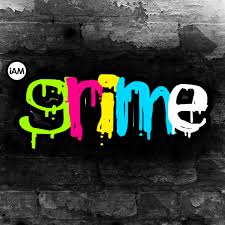
记忆方法
将“grime”分解为“grit”和“ime”。想象“grit”是沙粒或小石子,而“ime”像是一个污点附着在它们上面。这样,“grime”就可以想象为小石子上沾染的污垢,也就是灰尘或污垢的意思。
以上内容由AI生成, 仅供参考和借鉴
中文词源
grime 积垢
来自PIE*ghrei, 刮,擦,涂沫,词源同chrism, Christ,chrome. 原指涂在脸上伪装用的污泥。
英语词源
- grime (n.)
- 1580s, of uncertain origin, probably alteration of Middle English grim "dirt, filth" (early 14c.), from Middle Low German greme "dirt" or another Low German source, from Proto-Germanic *grim- "to smear" (cognates: Flemish grijm, Middle Dutch grime "soot, mask"), from PIE root *ghrei- "to rub" (see chrism). The verb was Middle English grymen (mid-15c.) but largely was replaced early 16c. by begrime.
权威例句
- 1. a face covered with grime and sweat
- 满是污垢和汗水的脸
- 2. His face and hands were coverd with grime from the coal dust.
- 他的脸和双手都沾满了煤灰和污垢.
- 3. The war in 1939 perforce ushered in an era of more grime and drabness.
- 1939年的战争必然导致一个更加肮脏、更加灰暗的时代的到来。
- 4. Kelly got the grime off his hands before rejoining her in the kitchen.
- 凯利洗去手上的污垢,又回到厨房来帮她的忙。
- 5. 'Look at this filthy grime all over your body.
- “ 你瞧瞧自已身上的这些污垢!
